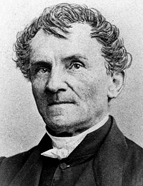

Henrich Schaefer, one of the most important Lusitanists to write about the history of Portugal in the 19th century, was born in Schlitz (Hessen, Germany) on 25 April 1794 and died in Giessen on 2 July 1869, at the age of seventy-five. With a degree in theology, he served as secretary of the court library in Darmstadt (1821), professor (1833) and rector (1848-49 and 1864) at the University of Giessen, a city in the Rhineland north of Frankfurt, then located in the principality of Nassau. He was a member of the Coimbra Institute, according to data from 1852 (Revista Universal Lisbonense, 1852, p. 491). At the same time, he was awarded the Order of Christ, through the intervention of the Viscount of Carreira, former diplomatic representative of Portugal in Paris and a close figure to King Ferdinand II. There is no record of Schaefer having been a member of the Lisbon Academy of Sciences.
In the words of Oliveira Marques, Heinrich Schaefer “was the son of a primary school teacher and local singer. He studied with his father and later entered secondary school in the nearby town of Hersfeld, originally intending to pursue either an administrative or a musical career” (“Henrich Schäefer e a sua História de Portugal” [Henrich Schäefer and his History of Portugal], Portugal-Germany-Africa... 1996, p. 63). learned Castilian, Catalan and Portuguese in the 1820s and 1830s, at a time when he was writing articles on Spain and Portugal. He had no known personal motivations or significant emotional ties to Portugal. It can be said that his Geschichte von Portugal was born out of a period of intellectual renewal and innovation in German culture and publishing.
This work is financed by national funds through FCT - Foundation for Science and Technology, I.P, in the scope of the projects UIDB/04311/2020 and UIDP/04311/2020.
